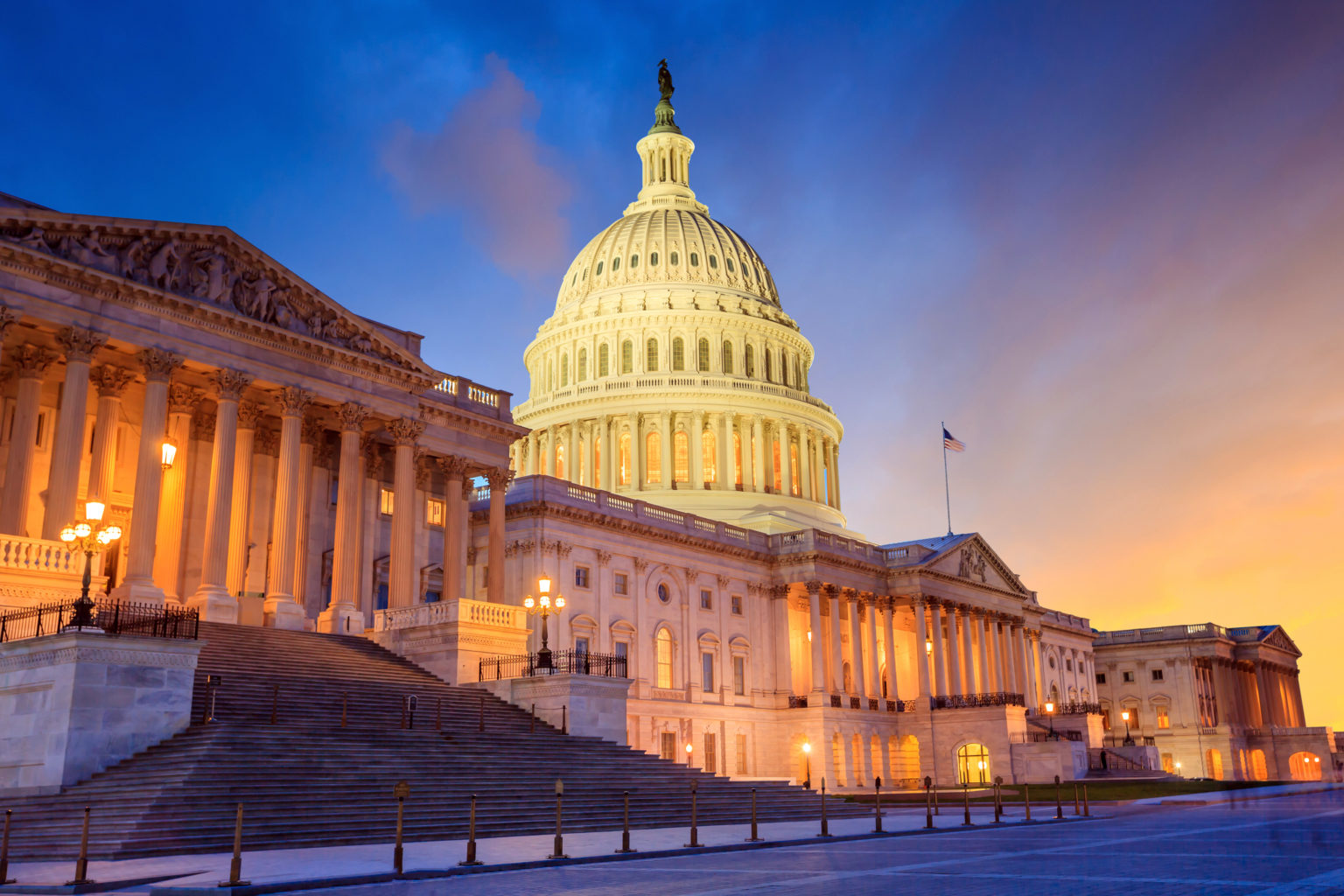Causes
Climate & Energy Independence
Humanity Forward communicates research, policy, and constituent stories to members of Congress in order to support high-impact legislation that will ensure economic, environmental, and diplomatic shifts on climate in the 21st century will include the United States serving in a strengthened leadership capacity.
Humanity Forward is focused on research and innovative policy ideas to fortify American energy independence and bolster clean renewable energy options. We work with members of Congress on both sides of the aisle, elevating real-life stories from constituents. Our work shapes high-impact legislation, ensuring that shifts in economic, environmental, and energy policy will help secure America’s future and the health of our planet.
Mitigating Rising Energy Prices
A pandemic, a global inflationary period, a war abroad, and a host of other factors have caused a dramatic supply crunch for traditional energy sources. This shift manifests for American households as an equally dramatic rise in prices – both at the pump and in energy bills at the end of the month. In June 2022, the national average price per gallon of unleaded gasoline surpassed $5.
Energy cost increases outpaced all other categories of the Consumer Price Index month-over-month in 2022, demonstrating the need to employ an “all of the above” energy strategy to bring prices back down for struggling families. Energy expenses are not like other routine costs for households like spending on consumer goods. Families can’t simply tighten their belts on their power bill when costs are rising, as their ability to pay is quite literally the difference between keeping the lights on or not.
Fortunately, market forces have been driving clean energy costs down, to the point of reaching parity with traditional energy sources in the near future. However, the pace of this transition is not sufficient to help Americans struggling with costs today. The glide path towards equivalent costs between renewable and traditional power sources will be further accelerated by incentivizing more construction of projects, but incentives will not work without reforming the permitting process for energy projects in the United States. Clearing the backlog on energy permits and allowing new projects to clear through red tape faster and more efficiently would quickly increase the total supply of energy in the United States from a wide range of sources, from traditional energy to green energy, bringing down costs and giving the US reliability and flexibility in its energy strategy.
A Sense of Urgency
After years of unmitigated risks stemming from climate change and insufficient action to protect the planet, the negative effects of climate change have begun to impact a wide range of areas. These include harm to defense readiness, disruptions to most industries, and increased frequency of natural disasters.
These adverse effects are expected to continue with greater magnitude, resulting in costs exceeding billions of dollars annually according to estimates from the National Oceanic and Atmospheric Administration. The negative impact of climate change-related disasters on our global economic output is in virtually every major industry, incurring hefty annual losses and weakening the American economy overall.
There is no way to build all the projects the United States needs to build under current permitting, zoning, and litigation laws that slow down projects with red tape and lawsuits.
While permitting reform could enable some fossil fuel projects to proceed, there are far more green energy projects stuck behind the byzantine permitting process than there are fossil fuel projects. The National Environmental Policy Act has delayed energy projects anywhere from five to seven years due to confusing guidelines and lack of oversight. They, along with Federal Energy Regulatory Commission, the Environmental Protection Agency, and state agencies with jurisdictional overlap layer on practically identical requirements that keep energy projects trapped in a labyrinth of red tape.
By clearing the backlog of energy projects through reforms to the permitting process, the United States can unleash a wave of new renewable energy projects and accelerate the ever-important mission of helping renewable energy reach pricing parity with fossil fuels, using the free market to tackle climate change.
For this reason, permitting reform is an essential component of a broader strategy to reduce carbon emissions. By updating the process by which we approve and build energy projects, we can make a renewable future much more achievable.

Researching Solutions
The nations that lead a renewable energy economy transition will be best positioned to serve as global leaders now and in the decades ahead. By advancing bipartisan legislation emphasizing the benefits of clean energy investments, the U.S. can maintain economic competitiveness while supporting American businesses, clean air and water, and fair labor standards here at home.
Solutions require legislators to adopt forward-looking, market-based approaches that can occupy a bipartisan policy space. Successful climate policy should not be punitive in nature, but rather encourage an achievable national transition towards sustainable, independent energy and carbon neutrality that does not burden families with European-style, sky-high energy prices. In addition, climate policy must also enable action with substance equivalent to the scale of the crisis at hand. Without sufficient action to change the course of rising temperatures, the consequences of global emissions will become irreparable.
Shaping Policies
Recently, Congress made unprecedented progress in addressing climate change and the largest investment in renewable energy through the passage of the Inflation Reduction Act (IRA). For over a year, Humanity Forward worked closely with key members of Congress, congressional staff, partners, and advisors to build support for the climate, drug pricing, and clean energy provisions in this legislation.
The Inflation Reduction Act includes $369 billion in clean renewable energy and climate reform including a significant investment in solar energy production and infrastructure, plus incentivizing households towards clean energy for ongoing savings in energy and fuel costs.
“Clean energy provisions in the bill would accelerate the deployment of clean energy technologies, reduce global emissions, lower energy prices, help export American innovation, strengthen our economy and build a reliable and affordable energy sector.” – Bipartisan Policy Center
However, the IRA must be met with an equivalent investment in changes to how energy projects are approved in the United States for the investments to reach their full effect. Permitting reform would enable both an “all of the above” energy strategy to reduce costs of powering homes, industries and transportation in the United States while accelerating a market-based transition to renewable energy.
Humanity Forward is working with lawmakers to advance efforts that can unlock domestic energy potential while directing America’s energy future towards sustainable, low-emissions sources. This work includes communicating research, policy, and constituent stories to members of Congress in order to support bipartisan permitting reform efforts that will lower costs for families while reducing long-term carbon emissions.
Recent News
-

News
House Passes Bipartisan Tax Deal to Extend Child Tax Credit
Washington, D.C. — On Wednesday evening, the House approved a bipartisan tax package valued at $78 billion, aimed at extending the child tax credit temporarily and reinstating several business tax benefits. The legislation is now slated for Senate …
Read More -

News
Humanity Forward Applauds Bipartisan Efforts on Paid Family Leave
WASHINGTON, D.C. — Today, Humanity Forward is applauding progress being made by a bipartisan group in both chambers of Congress towards advancing legislation on paid family leave. The group, headed by Senators Kirsten Gillibrand (D-NY) and Bill Cassidy …
Read More -

News
Sharp Rise in Child Poverty Signals Need for Bipartisan Action on Child Tax Credit
WASHINGTON, D.C. — According to new data released by the U.S. Census Bureau, child poverty increased by 12.4 percent following the expiration of the expanded Child Tax Credit (CTC) in 2022, signaling the need for bipartisan action on …
Read More